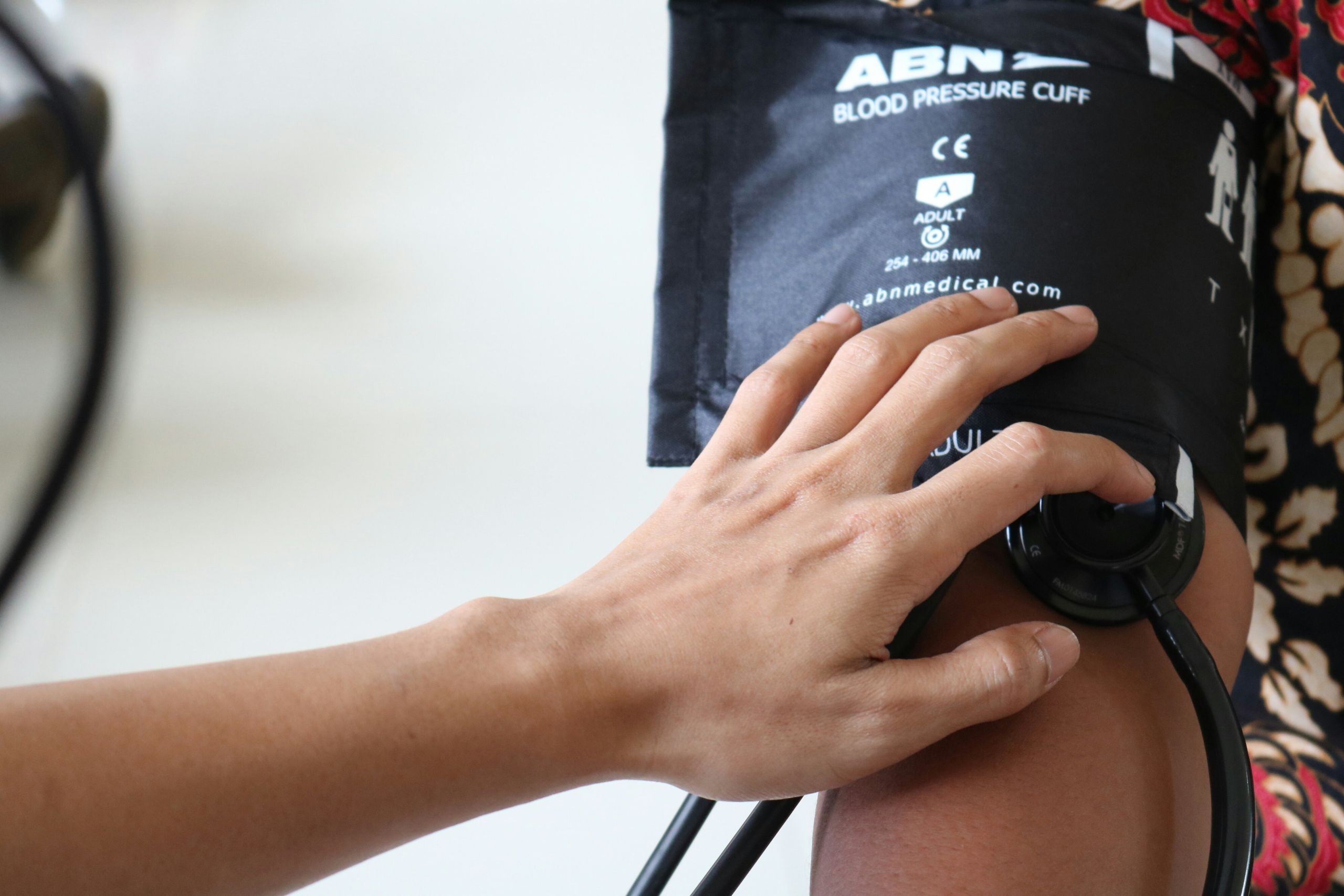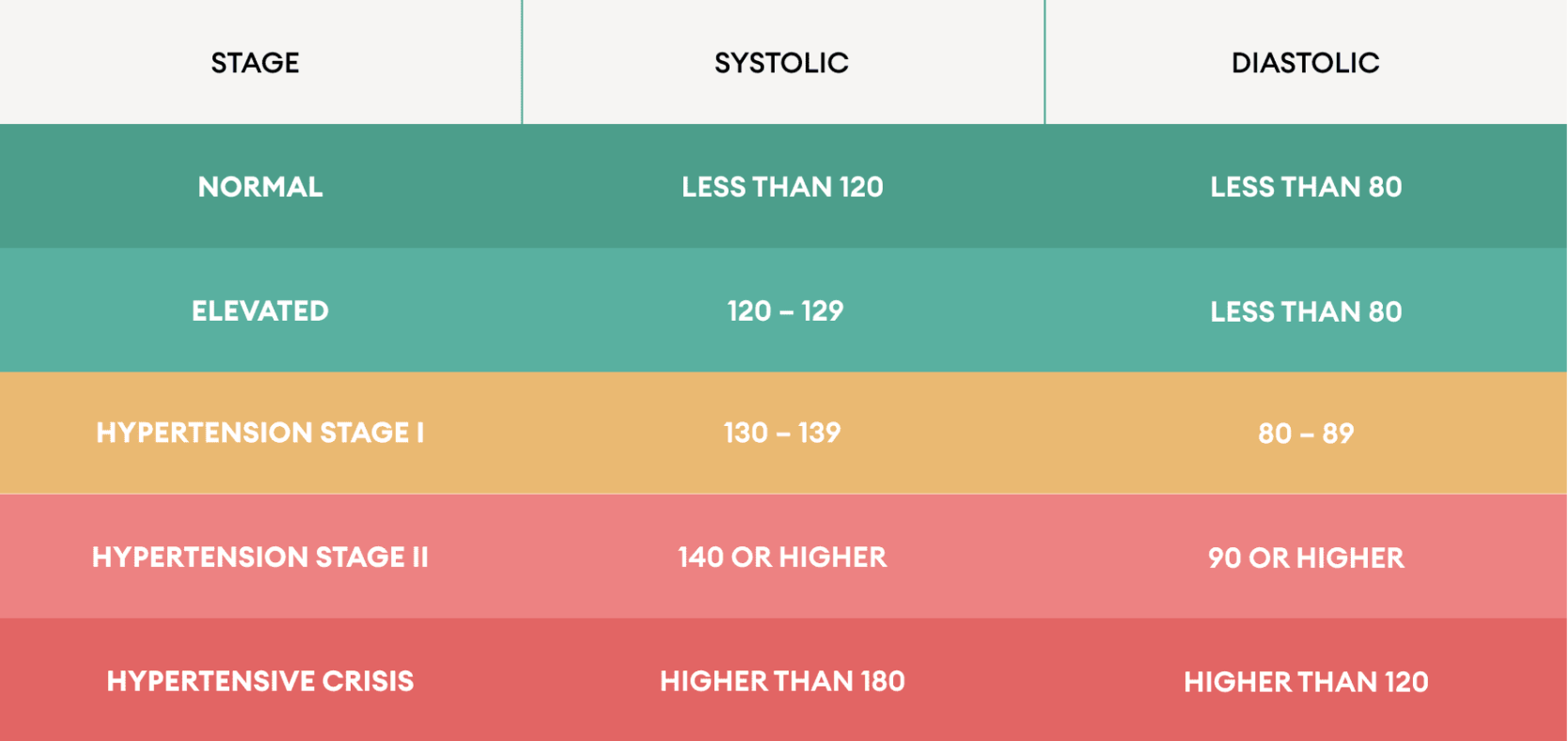Hypertension - High Blood Pressure
Learn all about hypertension - from the correct blood pressure measurement and ideal blood pressure values to diet and lifestyle tips to help prevent high blood pressure. Our comprehensive guide offers valuable insights into how you can minimise your risk of high blood pressure.

To mark World Hypertension Day on 17 May, we are focusing on a topic that affects many people but is often underestimated: Hypertension.
Alles, was Du über Hypertonie wissen musst
Bluthochdruck, oder Hypertonie, ist nicht nur eine häufige, sondern auch eine tückische Gesundheitsbedingung, die weltweit Millionen von Menschen betrifft. Wusstest Du, dass Hypertonie oft als "der stille Killer" bezeichnet wird, weil sie keine offensichtlichen Symptome hat, bis es zu spät ist? Unbehandelt kann sie zu schwerwiegenden Gesundheitsproblemen wie Herzinfarkt, Schlaganfall und Nierenversagen führen.
Doch die gute Nachricht ist, dass Du Hypertonie durch regelmäßige Überwachung und passende Lebensstiländerungen effektiv kontrollieren kannst. In diesem Blogbeitrag erklären wir Dir, wie Du Deinen Blutdruck richtig misst, welche Werte als normal gelten und wie Du durch Ernährung und Lebensstil das Risiko für Hypertonie reduzieren kannst.
How do you measure your blood pressure?
Measuring your blood pressure is easier than you might think, and it provides vital information about your heart health. You can use a digital blood pressure monitor placed on your upper arm or wrist. Here are the steps:
1. Preparation:
Rest for 5 minutes before the measurement to make sure your blood pressure is stable.
2. Positioning:
Sit or lie down comfortably and place your arm so that the blood pressure monitor is at heart level.
3. Putting on the cuff:
Wrap the cuff around your bare upper arm, about two fingers wide above the elbow.
4. Measurement:
Start the measuring device. Remain still during the measurement and do not move.
Once the measurement is complete, the device will display two numbers: the systolic pressure (the higher value) and the diastolic pressure (the lower value).
What blood pressure values are considered normal?
It is important to know your blood pressure values, as they can provide information about your health. Here are the guideline values:

It is important to note that blood pressure values can vary depending on age and gender. The above values provide a simple, general definition for adults. However, for a more accurate evaluation and assessment, individual factors such as age, gender and health status should be taken into account. It is advisable to seek regular medical advice to ensure that your blood pressure values are within the optimal range.
Prevention and Management of Hypertension
A healthy lifestyle can significantly reduce your risk of hypertension. Here are some effective strategies:
The power of nutrition
A balanced diet is the key to healthy blood pressure levels. Here you can find out how to harness the power of nutrition:
1. Eat more fruit and vegetables🍏🥦
- Fruit and vegetables are rich in essential vitamins, minerals and antioxidants that support heart health.
- Look for a variety of colours on your plate to ensure you're getting a wide range of nutrients.
2. Healthy fats are important 🥑🌰
- Include healthy fats such as avocados, nuts, seeds and olive oil in your diet.
- These fats can help lower bad cholesterol and improve heart health.
3. Limit your salt intake 🧂🚫
- Too much salt can increase your blood pressure.
- Less is more!
- Less salt and your food no longer tastes good? Stick with it for a week, your sense of taste will get used to it!
4. Drink plenty of water
- Water helps to maintain the balance of body fluids and supports overall health.
- Drink at least 8 glasses of water a day, more if you are physically active or live in a hot climate.
5. Cut down on sugary drinks
- The consumption of sugary drinks can affect vascular health in the long term and thus increase blood pressure.
- In addition, increased intake can lead to obesity, which is a significant risk factor for the development of hypertension.
6. Reduce your consumption of caffeine and alcohol
7. Watch your portion sizes
- Large portions can lead to overeating and therefore obesity, which is a significant risk factor for developing hypertension.
- Conversely, smaller portions help you to control your weight and thus contribute to lowering your risk of high blood pressure.
Beneficial fruit, vegetables and drinks🍎🌿
- Berries (blueberries, strawberries, raspberries) - Rich in antioxidants and fibre that support your heart health.
- Citrus fruits (oranges, lemons, grapefruits) - Rich in vitamin C and potassium, which can lower blood pressure.
- Green leafy vegetables (spinach, kale, chard) - High in nitrate and magnesium, which can help relax blood vessels.
- Bananas - Contain lots of potassium, which helps to balance sodium levels in the body.
- Beetroot - Contains nitrates, which can lower blood pressure.
- Avocados - Rich in healthy fats and potassium.
- Water - Important for hydration and maintaining balanced body functions.
- Herbal teas (hibiscus, chamomile) - Can help lower blood pressure and relax.
- Low sodium vegetable juice - A good source of potassium and other nutrients without the added sodium.
- Natural fruit juices (no added sugar) - Provide vitamins and minerals that are beneficial to heart health.
Be careful with:
- Pickled vegetables - Contains a lot of sodium
- Canned vegetables with added salt - Also high in sodium; opt for low-sodium varieties.
- Certain dried fruits - can be high in sugar and sodium; read the labels carefully!
- Fruit juices with added sugar - They contain a lot of sugar, which can lead to weight gain and increased blood pressure.
- Fried and deep-fried fast food - Can contribute to higher blood pressure if consumed in large quantities. High fat and salt content
- Sugary soft drinks - Contain a lot of sugar
- Energy drinks - Often contain high levels of caffeine and sugar, which can raise blood pressure.
- Alcohol - Excessive consumption can increase blood pressure; moderation is key.
- Caffeinated drinks (in excess) - Too much caffeine can lead to higher blood pressure.
Summary
Controlling your blood pressure through your diet is a great way to take control of your health. By keeping an eye on your diet and hydration and focusing on a plant-based diet, you can significantly reduce your risk of high blood pressure and improve your overall well-being.
Start making these changes today and feel the difference in your health tomorrow! With Every. 🌱
🍏🥤Eat sensibly, live healthily and take control of your blood pressure! 🫀🩺
We make it easy for you!
Integrate a plant-based diet into your everyday life. Now it's easy and delicious!
